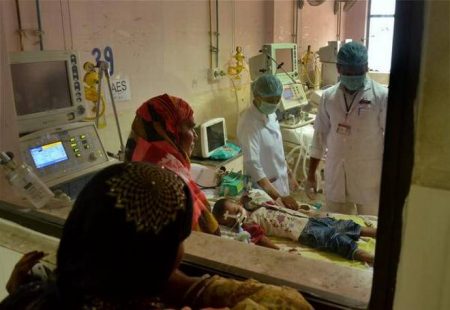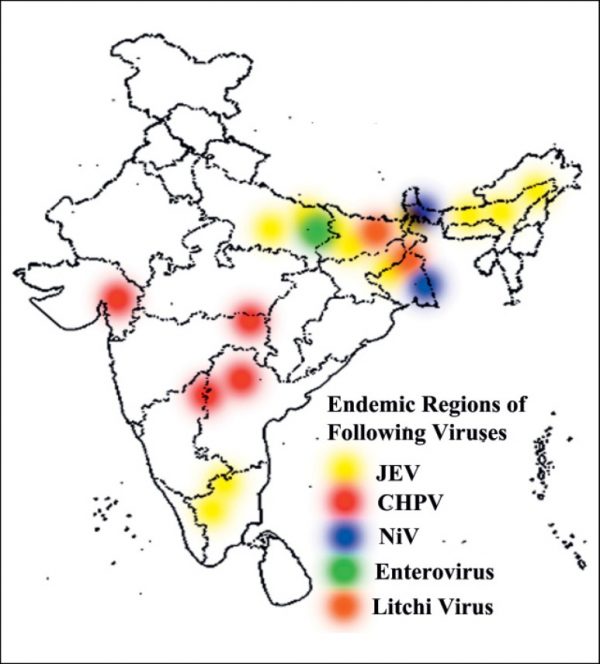Acute Encephalitis Syndrome 12/06/2019 – Posted in: Daily News – Tags: Hypoglycemia
ACUTE ENCEPHALITIS SYNDROME
For: Preliminary
Topic covers: AES – Causes, Symptoms, and Precautions
News Flash
At least 28 children have died in the last one month in Muzaffarpur district of north Bihar, allegedly due to Acute Encephalitis Syndrome (AES), which is locally known as Chamki bukhar (brain fever).
Background
Every year during summer time, especially in the season of luscious fruit litchi, AES outbreak gets reported and takes the lives of children in the district, which is India’s largest litchi cultivation region.
It generally hits those children who go to sleep empty stomach at night and eat litchis fallen on the ground.
Acute encephalitis syndrome (AES)
AES is a serious public health problem in India. It is characterized as acute-onset of fever and a change in mental status (mental confusion, disorientation, delirium, or coma) and/or new-onset of seizures in a person of any age at any time of the year.
- The disease most commonly affects children and young adults and can lead to considerable morbidity and mortality.
- Viruses are the main causative agents in AES cases.
- Other sources such as bacteria, fungus, parasites, spirochetes, chemicals, toxins and noninfectious agents have also been reported over the past few decades.
- Japanese encephalitis virus (JEV) is the major cause of AES in India (ranging from 5%-35%).
- Herpes simplex virus, Influenza A virus, West Nile virus, Chandipura virus, mumps, measles, dengue, Parvovirus B4, enteroviruses, Epstein-Barr virus and scrub typhus, S.pneumoniae are the other causes of AES in sporadic and outbreak form in India.
- Nipah virus, Zika virus are also found as causative agents for AES.
- The etiology in a large number of AES cases still remains unidentified.
- AES due to JEV was clinically diagnosed in India for the first time in 1955 in the southern State of Madras, now Tamil Nadu.
Principal Secretary of the Health Department said the deaths were caused by Hypoglycemia and not by the fever.
HypoglycemiaHypoglycemia, also called low blood glucose or low blood sugar, occurs when the level of glucose in your blood drops below normal. Severe hypoglycemia is when your blood glucose level becomes so low that you’re unable to treat yourself and need help from another person. |
Source: The Hindu, National Health Portal
You can follow us on LinkedIn and for more updates related to UPSC IAS Preparation, Like our Facebook Page and subscribe our Diligent IAS Youtube Channel


